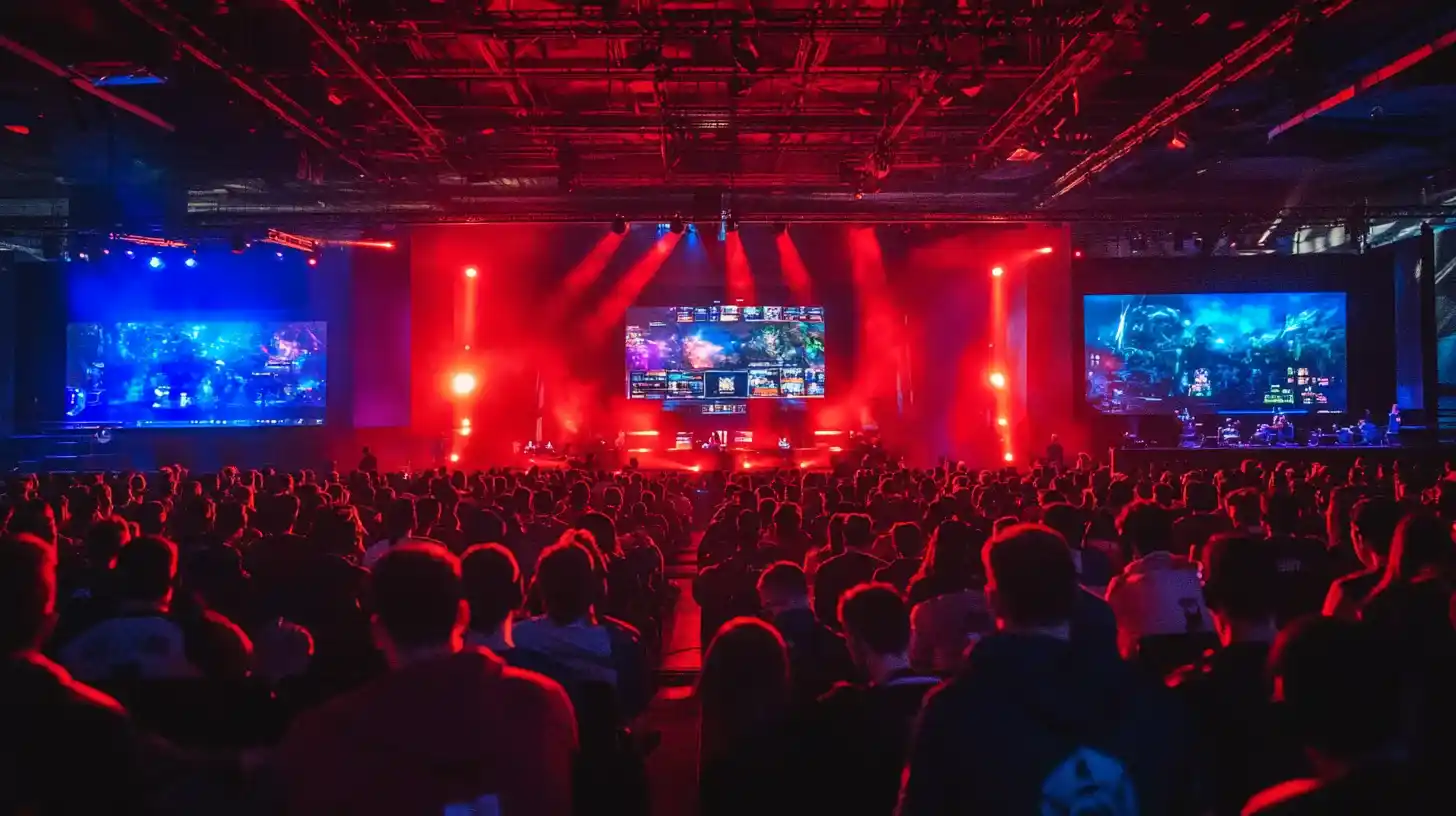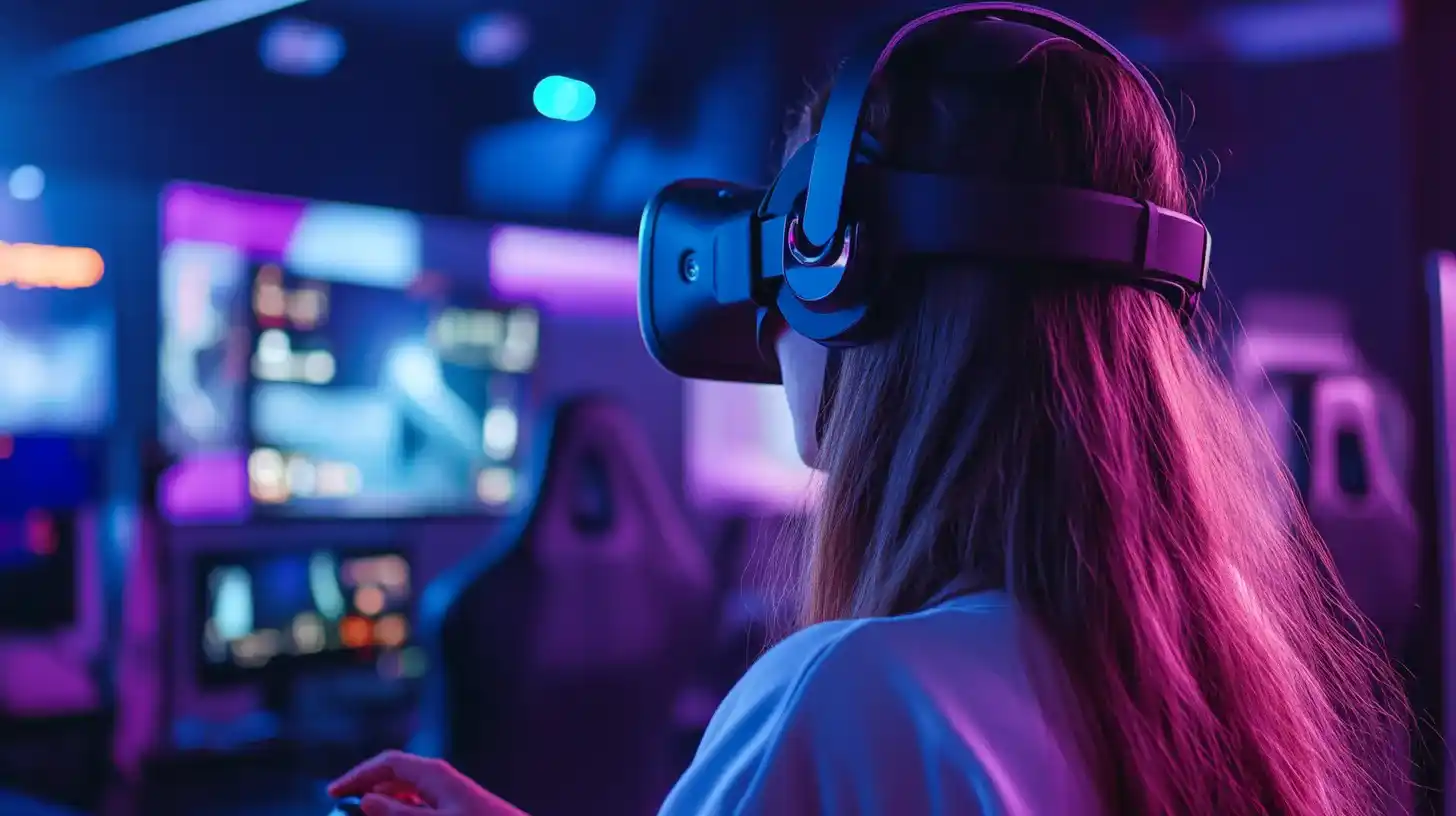Table of Contents
Artificial Intelligence (AI) is experiencing significant growth across various industries, fundamentally changing how businesses operate and engage with their customers.
In the gaming and esports sectors, AI is enhancing user experiences by automating content creation and personalizing interactions, which helps companies connect more effectively with their audiences. The rise of AI-driven analytics is enabling organizations to better understand gamer demographics and trends, allowing for more targeted marketing strategies.
Furthermore, AI is streamlining operations by automating routine tasks, freeing up resources for more strategic initiatives.
As AI technology continues to advance, its applications are expanding, promising to revolutionize industries by improving efficiency and creating more engaging experiences for users. Overall, the growth of AI is paving the way for innovative developments that are reshaping the landscape of various sectors.
AI In Esports
Artificial Intelligence (AI) is becoming increasingly integral to the esports industry, offering a range of applications that enhance both gameplay and management.
One of the primary uses of AI in esports is tournament predictions, where algorithms analyze data to forecast outcomes, helping fans and organizers alike.
Additionally, AI plays a crucial role in improving fan engagement by personalizing experiences and interactions, making the viewing experience more immersive and enjoyable.
Another significant application is in the prevention of cheating, where AI systems can automatically detect suspicious activities during matches, ensuring fair play and maintaining the integrity of competitions.
Overall, AI is transforming esports by streamlining processes and enhancing player and fan experiences, marking a pivotal shift in how the industry operates.
Evolution of AI in Esports: Historical Background
The evolution of AI in esports has been a gradual process, beginning with the early days of organized video game competitions.
Initially, esports were largely amateur events, but as technology advanced, the potential for AI to enhance gameplay and competition became evident. The development of AI technologies in esports has seen significant milestones, particularly in the late 2000s when the integration of AI began to take shape.
AI-powered bots started to be used in games like Fortnite and League of Legends, allowing for more dynamic and challenging gameplay experiences for human players. As AI technologies continued to develop, their implementation expanded into various aspects of esports, including player training, performance analysis, and competition management.
For instance, tools like SenpAI emerged, providing players with in-depth data on their gameplay history, which could be leveraged for improvement. Furthermore, AI’s role in detecting cheating and ensuring fair play has become increasingly important, as it automates the monitoring of matches and identifies malicious activities.
The historical background of AI in esports reflects a significant transformation, where the technology has evolved from simple bots to sophisticated systems that enhance both player performance and the overall esports experience.
Advantages of AI in Esports

The integration of AI in esports brings numerous advantages that significantly enhance player performance and the overall gaming experience. Here are some key benefits:
- Enhanced Player Performance and Analytics: AI technologies provide players with detailed analytics on their gameplay, allowing them to identify strengths and weaknesses. This data-driven approach helps players refine their skills and improve their performance in competitive settings.
- Personalized Training and Improvement: AI can tailor training programs to individual players, offering personalized feedback and strategies based on their unique gameplay styles. This customization enables players to focus on specific areas for improvement, leading to more effective training sessions.
- Data-Driven Decision-Making: Coaches and teams can leverage AI to make informed decisions regarding player roles, roster changes, and strategies. By analyzing vast amounts of data, AI supports teams in optimizing their performance and increasing their chances of success in tournaments.
- Streamlining Tournament Organization and Viewership Experience: AI plays a crucial role in managing esports tournaments by automating various organizational tasks, such as scheduling and match monitoring. Additionally, AI can enhance the viewing experience for fans by providing real-time insights and highlights, making the content more engaging and digestible.
The advantages of AI in esports encompass improved player performance through analytics, personalized training, data-driven decision-making, and enhanced tournament organization and viewer engagement. These benefits collectively contribute to the growth and evolution of the esports industry.
Impact of AI on the Esports Industry

The integration of artificial intelligence (AI) into the esports industry is driving significant changes, leading to growth and innovation across various aspects. Here are some key impacts:
- Growth and Expansion of Esports Market: The esports market has experienced exponential growth, partly due to the adoption of AI technologies. AI enhances the overall gaming experience, attracting more players and viewers, which in turn fuels market expansion. As AI continues to evolve, it is expected to further contribute to the industry’s growth by creating new opportunities for engagement and competition.
- Rise of AI-Powered Esports Teams and Tools: The emergence of AI-powered tools is revolutionizing how esports teams operate. These tools assist in player training, performance analysis, and strategy development, allowing teams to gain a competitive edge. AI-driven analytics provide insights that help teams make data-informed decisions, leading to improved performance and success in competitions.
- Influence on Game Development and Competitive Gaming Strategies: AI is also influencing game development by enabling developers to create more sophisticated and engaging gaming experiences. AI can simulate player behavior, allowing developers to test and refine game mechanics effectively. Additionally, AI impacts competitive gaming strategies by providing teams with advanced analytics and predictive models, helping them devise effective tactics against opponents.
The impact of AI on the esports industry is profound, driving growth and expansion, fostering the rise of AI-powered teams and tools, and influencing game development and competitive strategies. These advancements are shaping the future of esports, making it a more dynamic and competitive landscape.
Challenges and Considerations in AI-Powered Esports

As the esports industry increasingly integrates artificial intelligence (AI), several challenges and considerations arise that need to be addressed:
- Ethical Implications of AI in Esports: The use of AI raises ethical questions, particularly regarding fairness and transparency. For instance, if AI tools are used to gain an unfair advantage, it could undermine the integrity of competition. Ensuring that AI applications are used ethically is crucial to maintaining trust within the esports community.
- Potential Job Displacement and Skill Requirements: The rise of AI in esports may lead to job displacement, particularly in roles that involve repetitive tasks, such as data analysis and match review. As AI tools automate these functions, the demand for traditional roles may decrease. However, this shift also creates a need for new skills, as professionals will need to adapt to working alongside AI technologies and focus on more strategic and creative aspects of esports.
- Security and Fairness Concerns in AI-Powered Games: Security is a significant concern with AI integration in esports. The potential for hacking or manipulation of AI systems poses risks to the fairness of games. Additionally, ensuring that AI systems are designed to prevent cheating and maintain a level playing field is essential for the credibility of esports competitions.
While AI offers numerous benefits to the esports industry, it also presents challenges that must be carefully navigated. Addressing ethical implications, preparing for job displacement, and ensuring security and fairness are critical considerations for the future of AI in esports.
Future Outlook and Trends in AI and Esports

The future of esports is poised for significant transformation through the integration of artificial intelligence (AI) across various dimensions. Here are some key trends to watch:
- Integration of AI with Virtual Reality (VR) and Augmented Reality (AR): The combination of AI with VR and AR technologies is expected to create immersive gaming experiences. AI can enhance the realism of virtual environments, making gameplay more engaging and interactive. This integration will likely lead to new forms of esports competitions that leverage these technologies, providing players and fans with unique experiences that blend the physical and digital worlds.
- AI-Driven Esports Broadcasting and Fan Engagement: AI is set to revolutionize how esports content is produced and consumed. AI-driven broadcasting tools can analyze gameplay in real time, providing insights and highlights that enhance viewer engagement. Additionally, AI can personalize content for fans, tailoring experiences based on their preferences and behaviors. This shift will not only improve the quality of broadcasts but also foster a deeper connection between fans and the esports ecosystem.
- Regulatory and Governance Frameworks for AI in Esports: As AI becomes more prevalent in esports, the need for regulatory and governance frameworks will grow. These frameworks will be essential to address issues such as fairness, transparency, and ethical use of AI technologies. Establishing clear guidelines will help ensure that AI applications in esports are used responsibly and that competitions remain fair and competitive. This regulatory landscape will be crucial for maintaining the integrity of esports as it evolves.
The integration of AI with VR and AR, advancements in broadcasting and fan engagement, and the establishment of regulatory frameworks are key trends shaping the future of esports. These developments promise to enhance the gaming experience for players and fans alike while addressing the challenges posed by the rapid adoption of AI technologies.
Conclusion
In summary, the integration of artificial intelligence (AI) into the esports industry is set to revolutionize the landscape in several key ways. AI’s ability to enhance gameplay through innovative tools, improve broadcasting experiences, and personalize fan engagement highlights its transformative potential.
Furthermore, as the industry embraces AI, the establishment of regulatory frameworks will ensure that these advancements are implemented ethically and fairly.
The future of AI-powered esports looks bright, promising not only to elevate the gaming experience for players and fans but also to solidify esports as a significant force in the entertainment industry.
With ongoing advancements, the esports sector is on the brink of a new era, driven by the capabilities of AI to create more immersive and engaging experiences for all involved.
FAQs
Here are some common questions and answers regarding AI in Esports:
1. How is AI used in esports?
AI plays a crucial role in various aspects of esports, including competition management, gameplay simulations, and player performance analysis. AI-powered tools can automate repetitive tasks, providing valuable insights that help teams and organizers improve their strategies and operations.
2. What are the benefits of AI in esports?
The benefits of AI in esports are extensive. It enhances competition management by streamlining processes and offering insights into player performance. Additionally, AI can generate gameplay simulations that optimize game mechanics, ensuring a more enjoyable experience for players and fans alike.
3. Can AI improve player performance?
Yes, AI can significantly improve player performance by analyzing gameplay data and identifying areas for improvement. AI programs can learn from past matches, helping players adapt their strategies and enhance their skills over time.
4. What is the future of AI in esports?
The future of AI in esports looks promising, with ongoing advancements expected to create more immersive and engaging experiences. As AI technology continues to evolve, it will likely lead to innovations that further enhance the esports industry, making it more competitive and entertaining for everyone involved.
5. Are there ethical considerations with AI in esports?
Yes, as AI becomes more integrated into esports, ethical considerations will be paramount. Establishing regulatory frameworks will be essential to ensure that AI is used responsibly and fairly, maintaining the integrity of competitions and protecting players’ rights.